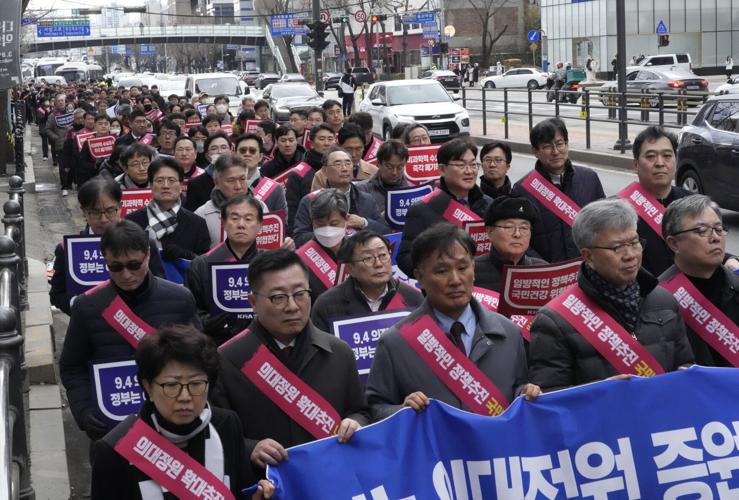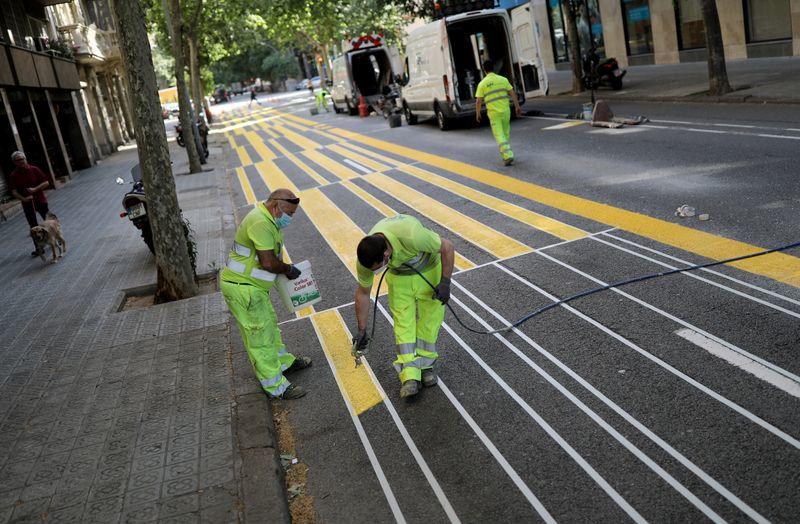Thousands of Korean doctors face license suspensions as Seoul moves to prosecute strike leaders

By HYUNG-JIN KIM AP
Thousands of striking junior doctors in South Korea faced proceedings to suspend their medical licenses Tuesday, as authorities are pushing for police investigations targeting leaders of the walkouts that have disrupted hospital operations.
Nearly 9,000 of South Korea’s 13,000 medical interns and residents have been refusing to work for the last two weeks to protest a government plan to enroll thousands more students in the country’s medical schools in coming years. The government ordered them to return to work by Feb. 29, citing a threat to public health, but most have defied threats of license suspensions and prosecutions.
“For those who lead the walkouts, we are thinking we’ll file complaints with police,” Vice Health Minister Park Min-soo told a briefing. “But I tell you that we haven’t determined exactly when we would do so and against whom.”
On Monday, the Health Ministry sent officials to hospitals to confirm the absences of the striking doctors to begin administrative steps to suspend their licenses. So far, the government has formally confirmed the absences of more than 7,000 strikers, and on Tuesday, officials were to continue on-site inspections of hospitals and begin sending notices to some strikers about license suspension proceedings, Park said.
Park said the striking doctors’ licenses would be suspended for at least three months, and doctors are to be given opportunities to respond before suspensions take effect.
“The trainee doctors have left their patients defenseless. They’ve even left emergency rooms and intensive care units,” Park said. “We can’t tolerate these irresponsible acts. They have betrayed their professional and ethical responsibilities and neglected their legal duties.”
Under South Korea’s medical law, doctors who defy orders to resume work can be punished with three years in prison or a 30 million won (roughly $22,500) fine, as well as a up to one-year suspension of their medical licenses. Those who receive prison sentences can lose their licenses.
Observers say the government will likely end up punishing only strike leaders, not all of the thousands of striking doctors. They say it would take a few months to complete the administrative steps to suspend the licenses of all the 9,000 striking doctors.
At the heart of the dispute is a government plan to raise the country’s medical school enrollment quota by 2,000 starting next year, from the current 3,058. Officials said South Korea must add more doctors to deal with a fast-aging population. But many doctors say universities aren’t ready to deal with that abrupt increase in the number of students and that the country’s overall medical service would be eventually hurt.
The striking junior doctors are a small fraction of the country’s 140,000 doctors, but they account for 30-40% of the total doctors at some major hospitals, where they assist senior doctors while training.
Many senior doctors support the junior doctors but haven’t joined their walkouts.
South Korean police said they are investigating five senior members of the Korea Medical Association, after the Health Ministry filed complaints against them for allegedly inciting and abetting the junior doctors’ walkouts.











